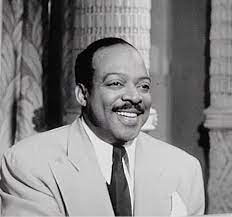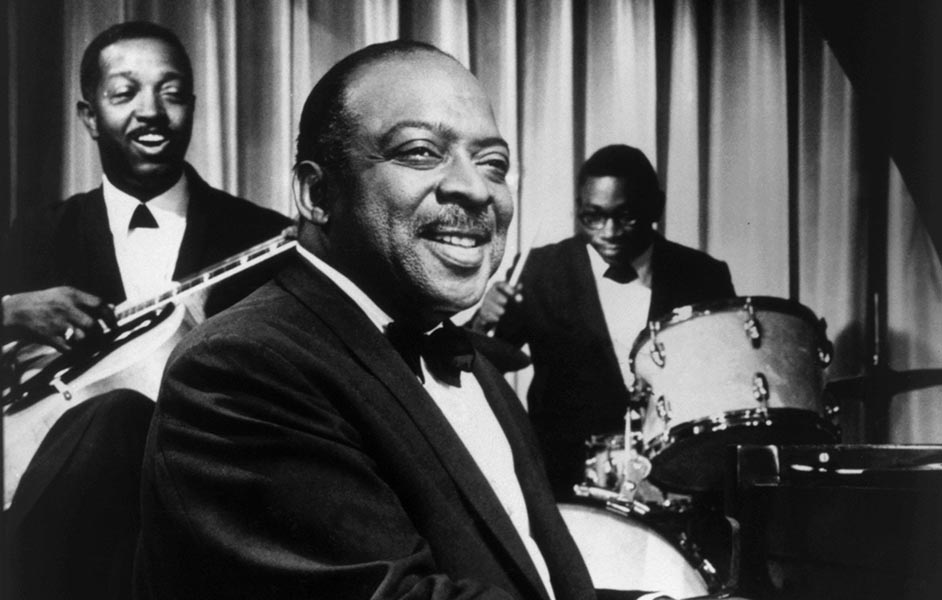Introduction:
Count Basie, the maestro of swing, was more than just a jazz musician; he was a pioneer whose music transcended boundaries and left an indelible mark on the world of music. With his infectious rhythms and unmatched piano prowess, Basie became a household name, earning acclaim as one of the greatest bandleaders in the history of jazz. From the smoky clubs of Kansas City to the grand stages of Carnegie Hall, Basie’s journey is a testament to the power of passion, perseverance, and the universal language of music.
Early Life:
Born William James Basie on August 21, 1904, in Red Bank, New Jersey, young “Bill” Basie showed an early aptitude for music. Raised in a modest household, he was introduced to the piano by his mother, who recognized his innate talent. At just four years old, Basie began tinkering on the keys, displaying a natural gift for improvisation and melody. Despite his humble beginnings, music offered Basie an escape and a means to express himself creatively.
The Kansas City Years:
In 1924, seeking opportunities beyond the confines of Red Bank, Basie embarked on a journey that would forever alter the course of his life. He made his way to Harlem, where he immersed himself in the vibrant jazz scene, learning from the likes of Fats Waller and James P. Johnson. However, it was his move to Kansas City in 1927 that proved to be the catalyst for his career.
In Kansas City, Basie found himself at the epicenter of a burgeoning jazz scene, where musicians converged to create a new sound that would come to be known as “Kansas City jazz.” It was here that Basie honed his skills, playing in local bands and absorbing the rich musical traditions of the Midwest. His distinctive piano style, characterized by its rhythmic drive and minimalist approach, quickly garnered attention, earning him the nickname “Count” from a radio announcer who compared his playing to that of royalty.
The Birth of the Basie Orchestra:
In 1935, Basie’s career reached a pivotal moment when he formed the Count Basie Orchestra. With a lineup of exceptional musicians, including the legendary saxophonist Lester Young, Basie set out to redefine the sound of jazz. Their innovative approach, marked by tight arrangements and infectious swing, captured the imagination of audiences around the world.
Throughout the late 1930s and 1940s, the Basie Orchestra rose to prominence, earning widespread acclaim for their electrifying performances and groundbreaking recordings. Hits like “One O’Clock Jump” and “April in Paris” solidified Basie’s reputation as a visionary bandleader, while his collaborations with vocalists such as Billie Holiday and Ella Fitzgerald further expanded his musical horizons.
Legacy and Influence:
Count Basie’s influence extended far beyond the realm of jazz, shaping the course of popular music for generations to come. His innovative approach to rhythm and improvisation paved the way for future generations of musicians, inspiring countless artists across a diverse array of genres.
In addition to his musical contributions, Basie was also a trailblazer for racial integration in the entertainment industry, breaking down barriers and challenging societal norms through his music. His commitment to equality and social justice earned him widespread respect and admiration, solidifying his status as a cultural icon.
Conclusion:
Count Basie’s legacy endures as a testament to the power of creativity, collaboration, and unwavering dedication to one’s craft. From his humble beginnings in New Jersey to his legendary status as the “King of Swing,” Basie’s journey is a testament to the transformative power of music and its ability to unite people across boundaries of race, class, and culture. As long as there are ears to listen and hearts to feel the rhythm, the spirit of Count Basie will continue to resonate, reminding us of the timeless beauty and boundless possibilities of jazz.


No responses yet